Plenary Keynote Speakers
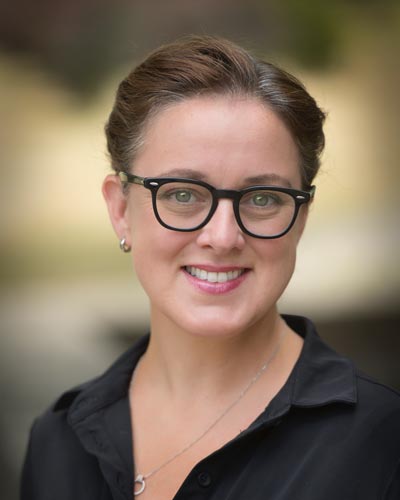
Christine Baes
Genetics and genomics for genetic improvement and sustainability animals – world perspective
Christine Baes, PhD, holds a Canada Research Chair in Livestock Genomics and is a full professor in the Department of Animal Biosciences at the University of Guelph in Canada. She is also a scientist and lecturer in the Vetsuisse Faculty of the University of Bern in Switzerland. Baes is actively involved in a number of industry and stakeholder groups, including the Genetic Evaluation Board of Lactanet, the Breed Advisory Committee of Holstein Canada, the International Committee of Animal Recording Feed and Gas Working Group, and the Genetic Monitoring Advisory Committee of the Swiss Federal Government. She is a steering committee member of Dairy at Guelph and a past president of the Canadian Society of Animal Science. Baes and her team are interested in understanding the genomic architecture of livestock, novel phenotypes, and inbreeding in livestock. She has published more than 100 scientific papers and received more than $20 million in competitive research funding. As a geneticist with a strong interest in animal behavior, she is interested in developing sustainable breeding programs that incorporate health, welfare, productivity, and efficiency. Her research involves using quantitative genetics and genomics, bioinformatics, and statistics to better understand the genome and how it affects livestock. With her team of graduate students, postdoctoral researchers, and collaborators, she applies these tools to large-scale breeding programs. In her spare time, she runs a small farm in rural Ontario.
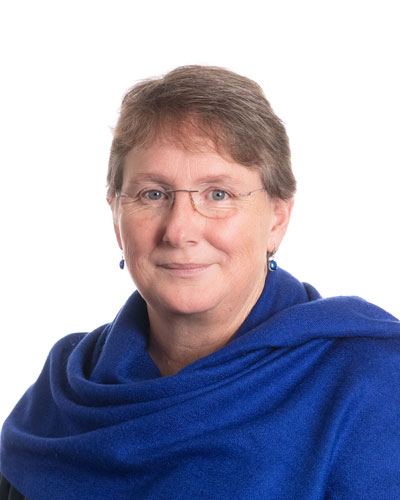
Paulette Bloomer
Genetic biodiversity in Southern Africa: Implications for wildlife conservation
Paulette Bloomer is a Professor of Genetics in the Department of Biochemistry, Genetics and Microbiology at the University of Pretoria (UP), South Africa. Currently, she also serves as the Deputy Dean: Teaching and Learning in the Faculty of Natural and Agricultural Sciences at UP. She is a research associate of the Mammal Research Institute at UP, and a member of two IUCN Specialist Groups (Afrotheria and Conservation Genetics). Ever since undertaking her PhD research on hyrax, she has used genetic tools to better understand populations and species of wild animals in southern Africa. In recent years her group has adopted conservation and population genomics approaches where these resources have become available for non-model species. Ultimately, her research group and collaborations aim to contribute to the effective management of wildlife populations, in the context of sustainable development.
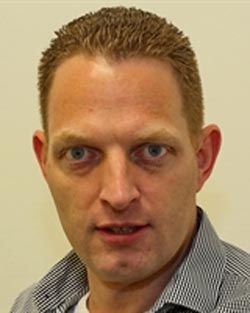
Mario Calus
Using functional annotation and individual omics in genomic prediction
Mario Calus is an associate professor in the Animal Breeding and Genomics group at Wageningen University. He obtained his MSc and PhD degrees from Wageningen University. His main area of expertise is on genomic prediction and selection, with an increasing focus on the use of functional annotations and intermediate omics data. He has more than 15 years of experience in the scientific development of genomic selection and its implementation in collaboration with the breeding industry, in recent years, through the Dutch public-private partnership, Breed4Food. He has published 150 peer-reviewed articles, is co-editor-in-chief of Genetics Selection Evolution, and is one of two senior editors for the Genetics of Complex Traits section of Genetics.
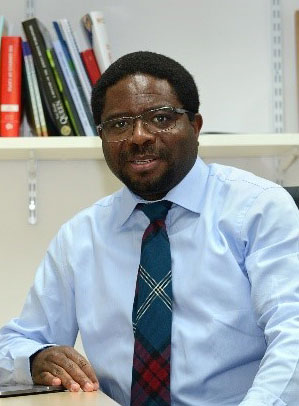
Appolonaire Djikeng
Experiences in genomic selection for improved animal health and adaptability in Africa
Dr. Djikeng has close to 20 years' experience leading multi-disciplinary, multi-institutional and global research and development programs focusing on agricultural development and human health.
Between 1999 and 2009, he conducted research at Yale University and the J. Craig Venter Institute focusing on infectious diseases, regulation of gene expression, mechanism of RNA interference, functional genomics of African trypanosomes (as key pathogens of humans and livestock animals), infectious and zoonotic diseases, technology development for multiplex viral genome sequencing and metagenomics. From 2009 to March 2017, based in Nairobi-Kenya, in his roles first as Deputy and then as Director of Biosciences eastern and central Africa (BecA), he built research and support teams, mobilized resources, developed innovative partnerships (with donors, research institutions, universities and national programs in LMICs) to establish and operate a leading biosciences research for development program currently operating as a key contributor to agricultural development and food safety in African. While at BecA, his research interests included livestock genetics, diversity assessment to support breeding/selections programs, animal health
From April 2017, he moved to the University of Edinburgh with appointments as i) Director of the Centre for Tropical Livestock Genetics and Health, and ii) Professor and Chair for Tropical Agriculture and Sustainable Development.

Lingzhao Fang
Big data integration in the era of animal omics: Current and future challenges
Lingzhao Fang, PhD, is a tenure-track assistant professor at the Center for Quantitative Genetics and Genomics at Aarhus University in Aarhus, Denmark. He obtained his PhD from Aarhus University in 2017 and pursued his postdoctoral work at the USDA and the University of Maryland in the United States. From 2019 to June 2022, he was a Marie Skłodowska-Curie Fellow at the Institute of Genetics and Cancer at the University of Edinburgh in the United Kingdom. His research focus is on the use of bioinformatics and integrative genomics in large-scale omics data to understand the genetic and evolutionary mechanisms underlying molecular phenotypes, complex traits and diseases, and adaptive evolution across farm animals and humans. He initiated and is currently leading the Farm Animal Genotype-Tissue Expression project, which is an international effort that aims to build a comprehensive, open-access catalog of regulatory variants (e.g., eQTLs) across distinct biological contexts (e.g., tissue, cell, development, and environmental factors) in farm animal species (e.g., cattle, pigs, chickens, sheep, and goats), which will eventually transform basic biological discovery, the animal breeding biotechnology, and human biomedicine.
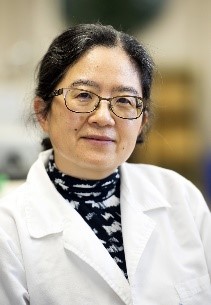
Leluo Guan
Microbiome solutions for improving the sustainability of cattle production
Dr. Leluo Guan is Professor in the Faculty of Agricultural, Life and Environmental Sciences, University of Alberta, Edmonton Canada. Dr. Guan is one of the pioneer researchers in cattle gut microbiome. Dr. Guan's research program focuses on 1). Elucidation of the molecular mechanisms of host-microbial interactions by characterization of bovine gut microbial ecology and its functions using metagenomics/metatranscriptomics approaches, and host gene expression using a functional genomics approach; 2). Association between gut microbiome and feed efficiency, methane emission, productivity and gut immunity development in beef and dairy cattle; 3). Study of the bovine transcriptome, proteome, and non-coding microRNAs and their roles in economically important traits. Dr. Guan is the author or co-author of 242 peer-reviewed publications and 8 book chapter with H-index of 63.0. She has secured > 33.9 M research funding (>10.5 as PI and >23.4 M as Co-I) and has trained a total of 38 grad students and 21 postdocs. For her contribution, Dr. Guan was awarded with multiple prestigious awards including Technical Innovation in Enhancing Production of Safe Affordable Food Award from Canadian Society of Animal Science in 2013; Killam Professorship in 2017; ADSA Zoetis Physiology Award and Canadian Society of Animal Science Fellowship in 2021.
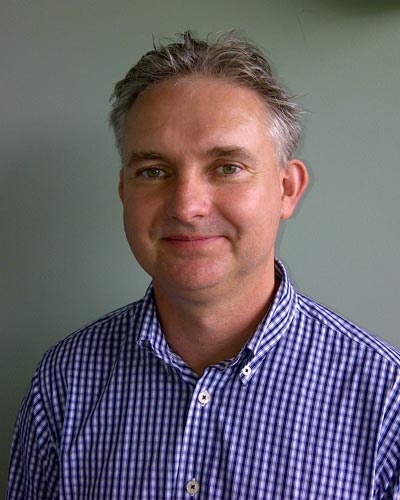
James Kijas
Genomic applications in aquaculture for future food security
James Kijas, PhD, is a genomic scientist who has developed an international reputation in the field of animal science. He leads a group at CSIRO, operating commercial-applied breeding programs spanning a range of finfish, crustacean, and molluscan species. His research focuses on the development and application of genomic tools to accelerate the rate of genetic gain for production traits.
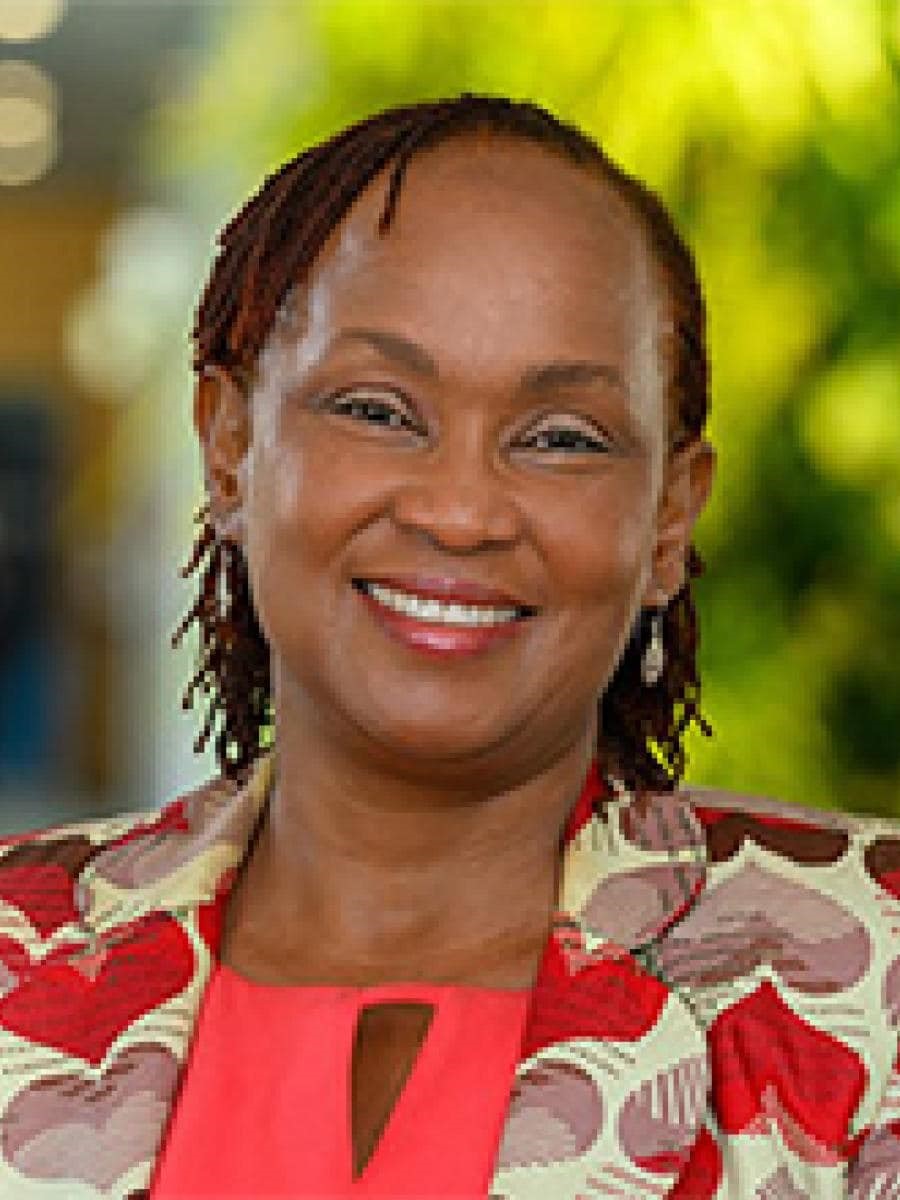
Anne Muigai
The African BioGenome Project: An African initiative to conserve and document Africa's biodiversity
Anne Muigai, a Professor of Genetics, is the Deputy Vice Chancellor Academic Affairs and Research at the National Defence University-Kenya.
She was a member of the WHO Advisory Committee on Governance and Oversight of Human Genome Editing between 2019 and 2021. She is currently Chair of the African BioGenome Project. Furthermore, she is a member of the Kenyan Commission for University Education (CUE), the African Technology and Innovations Incubators Advisory Committee (ATIIAC), and has previously been member of the Board of the Kenya Plant Health and Inspection Services and the Animal Genetic Resources Advisory Group (AnGR-TAG) for Africa.
Anne Muigai holds a MSc in plant science as well as a PhD in Population Genetics and Molecular Biology from Jomo Kenyatta University of Agriculture and Technology, Kenya.
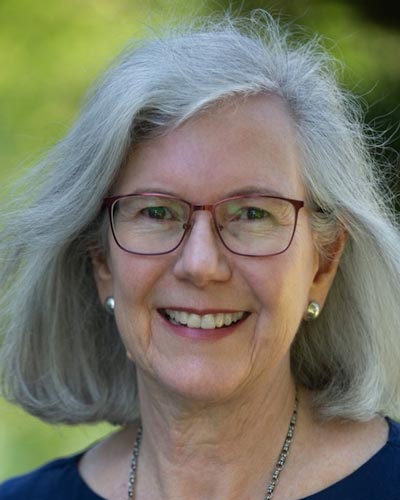
Michèle Ramsay
Understanding African health through genetic diversity
Michèle Ramsay, PhD, is the director of the Wits Sydney Brenner Institute for Molecular Bioscience, a professor in Human Genetics, and chair of South African Research in Genomics and Bioinformatics of African Populations. Her research aims to shed light on the role of African population genomic variation in susceptibility to diseases in the context of the ethnic and environmental diversity across the continent. She is the principal investigator of an African longitudinal cohort of ~12,000 individuals as part of the H3Africa Consortium, is on the Scientific Advisory Committee of the H3Africa Bioinformatics Network and the External Advisory Board of EU-Africa PerMed Consortium, is co-chair of the International HundredK+ Cohorts Consortium, and president of the International Federation of Human Genetics Societies. Her recent awards include DSI Distinguished Woman Researcher (August 2019), NSTF-South32 Lifetime Achievement Award (July 2020), and a Gold Medal from the South African Medical Research Council (March 2021).
